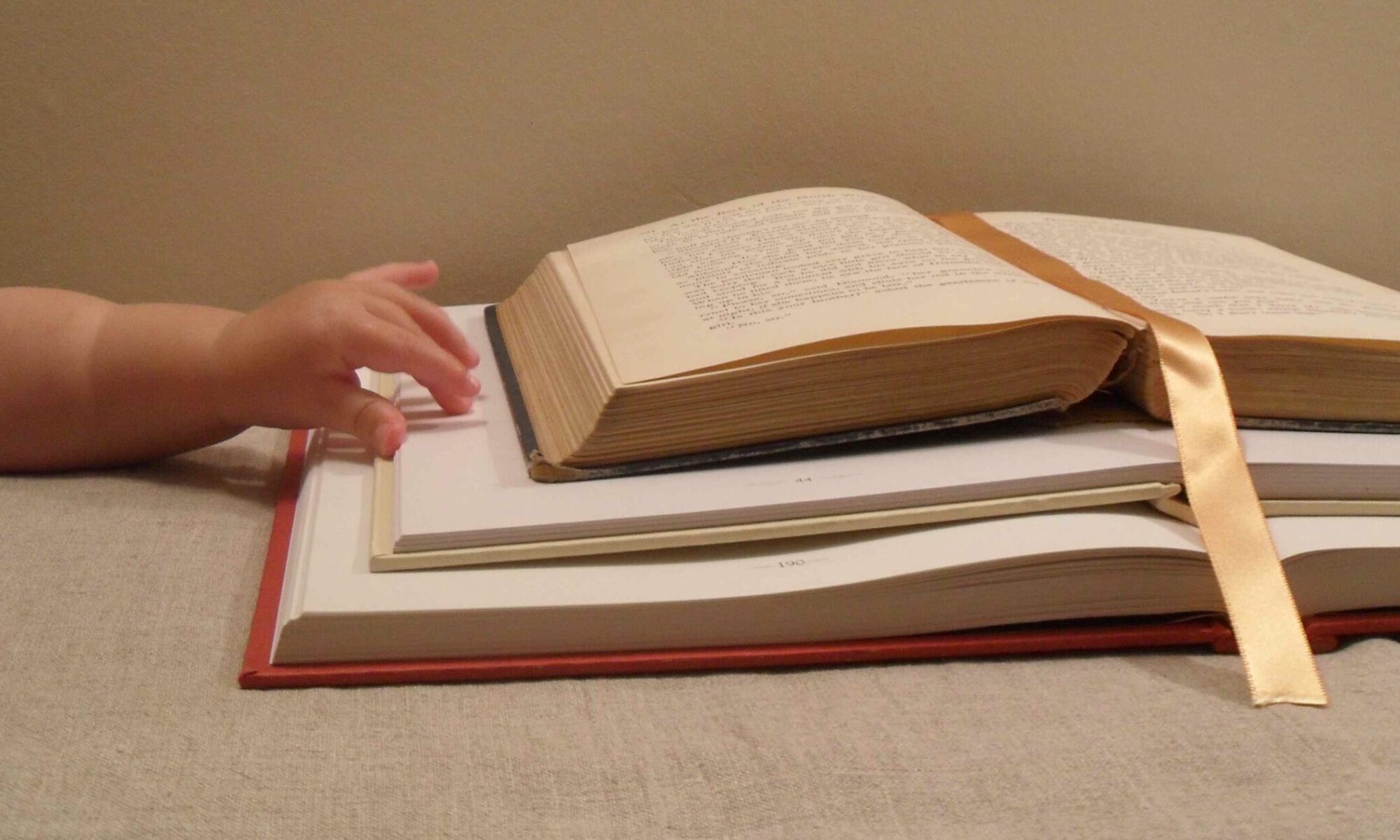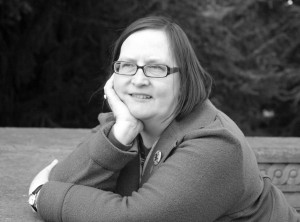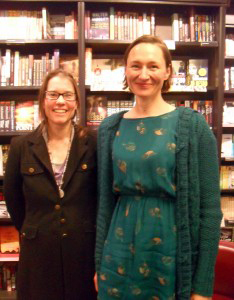As there are now only 12 days to go until the deadline for submissions for the Mother’s Milk Books Writing Prize I thought it was high time that I shared this interview with Dawn Allen, the prose winner of last year’s prize. Many thanks to Dawn for taking the time to answer my questions and I hope it inspires YOU to put pen to paper and enter our Writing Prize!
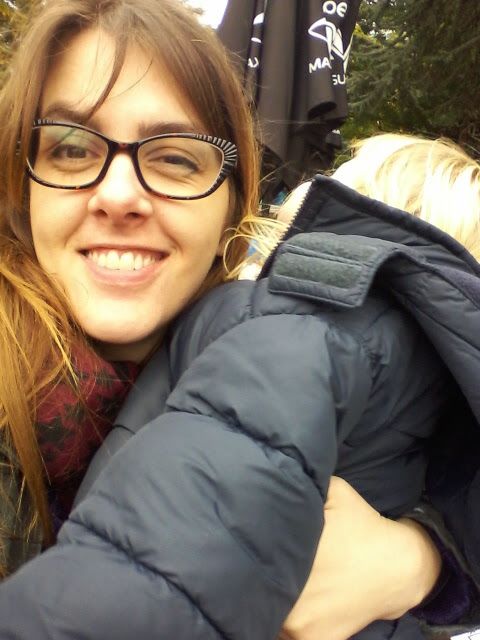
1. Can you tell us a bit about yourself?
I’m a single mother to my three children: daughters aged 3 and 6, and a stepson who is 15. We’ve lived in Cambridgeshire for some time now but I grew up in Dorset and have also spent time living in Canada as I have family there. I used to work in Local Government before my stepson lived with me and then I completed a Psychology degree part-time as a mature student whilst he was in primary school. Since having my daughters I’ve been a full-time mum and we enjoy a lot of creative pursuits together as well as exploring the outdoors. In my spare quiet moments I love reading and knitting. I’ve also been practising pilates for over 10 years and recently started Qi Gong. I’m keen to learn to paint and try new ways of creative expression as I find it really therapeutic and I also like to learn new things alongside my kids, so they see me trying things too and starting at the beginning the same as they do.
2. How, when and why did you first start writing?
I’ve been writing since I was quite young, firstly sending letters regularly to my aunt and grandmother in Canada and then short stories when I started school. I can remember writing to my grandmother when I was about 5 saying that I was going to write a novel, and I recently found the title page I’d drawn for it. I haven’t got round to writing it yet but one day I will, probably (hopefully!) a bit more easily than when I was 5. In secondary school I had some short stories published in the school magazine, and my parents still have copies of a lot of my teenage work. I’ve always loved to write, both as an expression to others and as an expression of imagination.
3. How often do you write?
I’m quite sporadic with my writing, I tend to either think about an idea for a long time before actually getting it on paper all in one go, or I might wake up in the middle of the night with something I have to write down there and then. I don’t have a regular practice to my writing, but then I’ve never been good with routines so I think it’s just my way of doing things and it definitely works well for me around the children. I try to keep a notebook with me to write poetry as that’s normally inspired by being outdoors so then I don’t have to try and remember it for later. Once I do start writing I usually keep at it until I’ve finished the complete first draft. Sometimes that’s a few hours and others it’s over a couple of days, but once I start it’s like I need to get the words out so I don’t want to be distracted with anything else. It means a lot of the evenings I start writing have turned into mornings by the time I’ve finished writing but I’ve come to accept that as my style and it suits me.
4. What made you decide to enter the Mother’s Milk Books Writing Prize?
I decided to enter because I love the essence of Mother’s Milk Books and I enjoyed having the opportunity and challenge to write within such a meaningful theme. It gave me the chance to write from the heart which is a very empowering experience.
5. How did it feel when you’d heard that you’d won?
I was really surprised and it actually took a little while to sink in. I hadn’t expected to win but I was really proud of the piece I wrote because I realised afterwards that I’d needed to write it not just for the writing prize but also for myself. To then have someone else read it and choose it as the winning piece was a really special moment.
6. Can you tell us a little about your winning piece of writing?
It’s basically an expression of the inner voice I’ve had to find as a mother. I’ve spent a lot of evenings in the dark, alone, feeling like I’m getting everything wrong. I would sit on the floor and despair that these children only had this failing, useless mother to look after them in the world. But then when I realised I was totally alone, and they did only have me, I also realised I was actually doing a pretty good job. I just needed to give myself a break. I tried to think of what I would say to someone else exactly in my position and I wrote this piece as if I was sitting next to myself in those darkest moments, saying the things that I needed to hear. And not only because I needed to hear them but also because they were true.
I think all parents, whether raising kids with a partner or alone, have times when the fear and doubt are just overwhelming. We all need a positive voice to acknowledge and encourage us, and the biggest lesson I’ve learned is that it can come from within. I felt this particularly fitting to the theme of love within a family context because so often as parents we are so busy giving our love to our family that we forget to give ourselves the love that we do truly deserve.
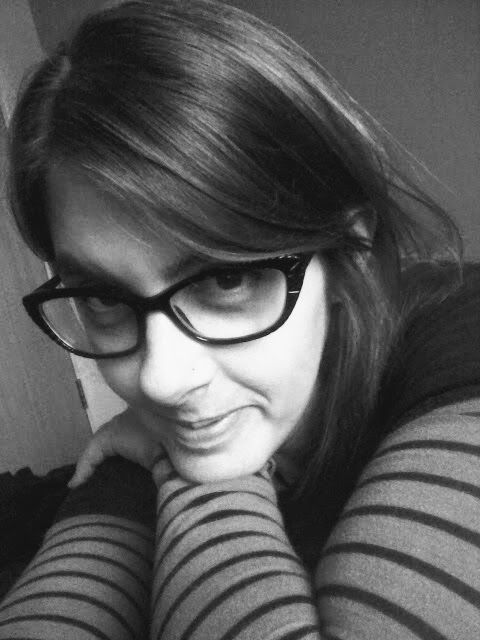
7. Any future writing plans?
Well I’m hoping to get around to the novel I’ve been planning for the past 29 years, although I think that’ll have to wait until my children are a little older. I’m continuing to write prose around my experience as a parent and also trying my hand at different genres of fiction.
8. Any tips for writers?
I think it’s important to just start writing, even if you’re not exactly sure where you’re going to end up. The important thing is to get going and not be put off by over-thinking it. I find that often a story will take you where it needs to go once the words start flowing.
It’s also good to read a lot, and to try different authors and genres. I think it helps you grow in your own writing to see that of others and to learn what you do and don’t like from it.
Most of all I would say to write the words that you need to write and be comfortable with your own natural style. Your voice is unique and you should have confidence in that (although that’s easier said than done, I know!).
Dawn’s winning prose piece ‘Nurturing My Darkness’ was first published in the Summer 2016 issue of JUNO. It also features in The Mother’s Milk Books Writing Prize Anthology 2015: LOVE. And if you feel inspired to take part in this year’s Writing Prize, please read the full guidelines here.
